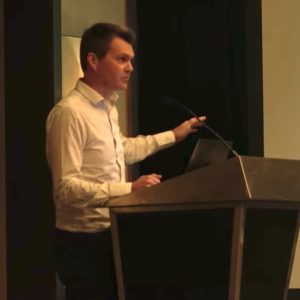 In this video from the GoingARM Workshop, Prof. Simon McIntosh-Smith from the University of Bristol presents: First Public Disclosure of Isambard Supercomputer Performance Results.
In this video from the GoingARM Workshop, Prof. Simon McIntosh-Smith from the University of Bristol presents: First Public Disclosure of Isambard Supercomputer Performance Results.
“Scientists have a growing choice of potential computer architectures to choose from, including new 64-bit ARM CPUs, graphics processors, and many-core CPUs from Intel. Choosing the best architecture for an application can be a difficult task, so the new Isambard GW4 Tier 2 HPC service aims to provide access to a wide range of the most promising emerging architectures, all using the same software stack. Isambard is a unique system that will enable direct ‘apples-to-apples’ comparisons across architectures, thus enabling UK scientists to better understand which architecture best suits their application.”
Why explore Arm-based supercomputers?
- The architecture development is driven by the fast-growing mobile space
- Multiple vendors of Arm-CPUs:
- Greater competition
- More choice
- Rapid innovations, e.g. in vector instruction set
- Mont-Blanc proved the approach is feasible
Simon McIntosh-Smith is a High Performance Computing expert and head of the Microelectronics research group. He began his career in industry as a microprocessor architect at Inmos and STMicroelectronics, co-designing the world’s first fully programmable GPU at Pixelfusion in 2000. In 2002 he co-founded ClearSpeed where he co-developed the first modern many-core HPC accelerators. In 2003 he led the development of the first accelerated math libraries, leading to the first modern accelerated Top500 system, TSUBAME at Tokyo Tech in 2006. He advises UK research councils and companies on HPC strategy, with a focus on advanced technologies, such as many-core computing. He sits on the Khronos industry standards body, actively contributing to the OpenCL parallel programming standard. He is a member of the EU-funded European Exascale Software Initiative (EESI), sits on PRACE funding panels, and sits on the program committees for HPC conferences including SuperComputing, ISC and HiPEAC.




